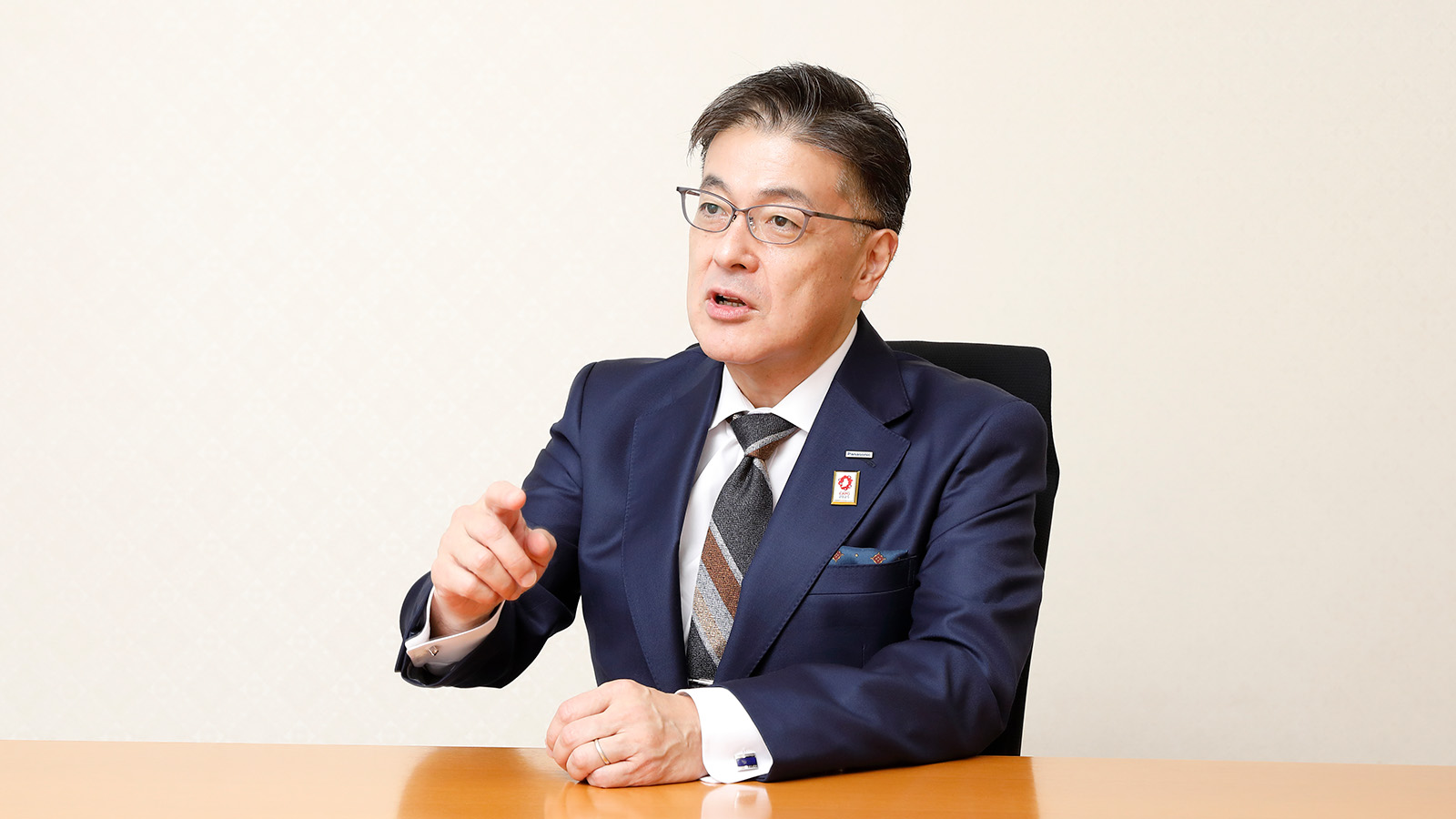
2024.03.22
Talking with Group CEO Kusumi
Unlock the Potential of Each Individual to Accelerate Change:
Yuki Kusumi, Group CEO, Panasonic Holdings Corporation
Series:
Break down outdated rules and become unrivaled in our work
In my New Year message to all Panasonic Group employees in January this year, I said I wanted each employee to unlock their own potential. Once again, I would like to share with you my thoughts behind using the word "unlock."
The Panasonic Group has long strived to create a wide range of value for society and our customers. Over the course of the company's long history, however, stereotypes based on past experiences and barriers between businesses and divisions have formed in the minds of employees. Worse, achieving sales and profit targets had become the top priority or purpose of the company, even at a time when drastic reforms were needed to increase our competitiveness. A number of internal rules and regulations have been put in place to prevent the recurrence of mistakes, but they have only stifled the willingness of individuals to take on new challenges. I'm afraid that this has happened over and over again in our company. As a result, our employees have not been able to reach their full potential, and we have been unable to meet our customers' expectations for speed, cost, and many other requirements. Thus, the Group has failed to achieve growth over the past 30 years.
In an attempt to eliminate these impediments to our growth and restore our company to one that allows each employee to fully embrace challenges, two years ago we updated the Basic Business Philosophy (BBP), which guides us in making contributions to progress in society, for the first time in 60 years. We made the new BBP easier to understand in the context of the conditions and values of today's society, and we also added items that were missing in the previous version, such as eliminating waste, inaction, and rework. The underlying idea of our BBP is employee entrepreneurship—each individual should approach their job as a Panasonic Group employee as their own independent business, and work as if they were the manager running the business.

What is important is that all employees focus all of their abilities on their jobs, creating better ways and means and boldly implementing them toward greater achievements. This is how we work to create value that is unique to us, and this is the employee entrepreneurship that the Panasonic Group is pursuing. Simply following established rules or business processes is not considered doing your job. In my opinion, you have to try without being afraid of small mistakes and accelerate success to create customer value. In an ever-changing business environment, we must change any rule that no longer contributes to customer value. I want all Panasonic Group employees to demonstrate their creativity and ingenuity, changing our old systems to fit current circumstances and promoting corporate reform. To this end, I want Panasonic to draw on the wisdom of its employees and to motivate them to take on new challenges.
The updated BBP includes the phrase "Be unrivaled in our work" by Arataro Takahashi, former Chairperson, who supported our founder Konosuke Matsushita for a long time. It is only when we are unrivaled in our work that we can become the first choice of our customers, gain their trust, and thus achieve business growth. This is fundamental to our company's business, and all of our employees must share this understanding anew. Break down outdated rules, stereotypes, and organizational barriers. Unlock the potential of each and every employee, and keep trying and improving. I believe this is essential for us to be chosen by customers and society, and thus contribute to progress in society.
My Unlock Experience

Panasonic's first BS digital high-definition television with the "d" button and tuner
In Japan's BS digital broadcasting, which began in full swing in December 2000, in addition to video and audio transmission, data broadcasting service (information service that can be used with the "d" button on a remote control) was launched. At the time, I was involved in the standardization of the data broadcasting system as an engineer.
Since the previous ministerial ordinance related to analog television broadcasting did not address the transmission of data broadcasting signals, it was necessary to change the ordinance in order to actually start this data broadcasting service. Although I was a leader in the standardization project, I was only an engineer from one manufacturer, so I could not imagine that I would be changing the nation's regulatory structure.
However, when the person in charge at the relevant ministry casually said, "This ministerial ordinance needs to be changed, so we will work to change it," the scales fell from my eyes: I realized that such things could be changed if necessary. I hadn't even considered that amending the ministerial ordinance was possible, but it turned out that it could be done if necessary. … It was then that I became convinced that if this were possible, we could also do whatever was necessary with our own company's internal rules.
Later, the first television with the "d" button went on sale. I still vividly remember how I stood there in tears, when I saw how impressed the customers were during the in-store demonstration of its functions.
This was my formative experience with the effect of unlocking. Of course, there are things that must not be changed, such as rules protecting human rights or preventing social disorder. On the other hand, if it is necessary to change rules to create customer value, we should do so without hesitation. The experience of "d" button standardization had a great impact on me, and it gave me this idea.
The content in this website is accurate at the time of publication but may be subject to change without notice.
Please note therefore that these documents may not always contain the most up-to-date information.
Please note that German, French and Chinese versions are machine translations, so the quality and accuracy may vary.










